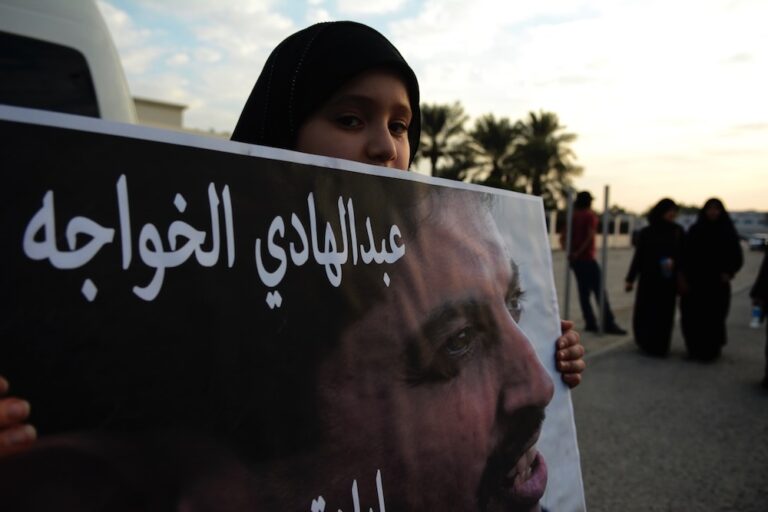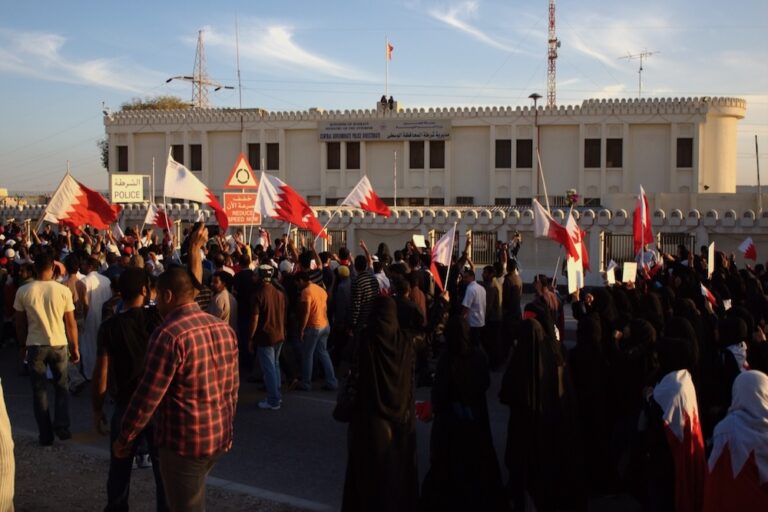Many who have spoken to media have been subject to intimidation, violence, arrest, and prosecution, according to BCHR.
(BCHR/IFEX) – 18 June 2011 – The Bahrain Center for Human Rights (BCHR) expresses its extreme concern over the continuous violation of the right to freedom of speech and expression by the Bahraini regime towards all those who are expressing their opinions and beliefs to the media and exposing the human rights violations committed by the security forces in Bahrain.
Since 14 February, foreign media and journalists have been interested in the Bahraini uprising; many have been to the Pearl roundabout, been present at protests and rallies and have interviewed protesters, in order to report to the whole world the peacefulness and civilized nature of the uprising, the protesters’ legitimate demands and their calls for political reform.
On 18 March, the Bahraini government imposed Martial Law and started a campaign to conceal facts about the situation on the ground and hide its ongoing brutality and crimes. In its attempt to silence and intimidate whoever speaks out and contacts the media, the Bahraini regime started targeting those who have appeared on television or talked to journalists about the uprising and exposed violations.
“They are going to target us one by one, whoever appeared on camera”, said Sayed Ahmed Al Wadae, an engineer who graduated from the UK, on AlJazeera’s “Bahrain: Fighting for Change” documentary, with words foreshadowing what was to come. However, this did not prevent him from expressing his opinion and his demands for reform, as he spoke of discrimination against Shia citizens and detailed how he was attacked and beaten during the first crackdown in the Pearl roundabout on 20 February. On the night of 16 March, right after the crackdown on the protesters at the Pearl roundabout, Al Wadae’s house was raided and he was arrested and held incommunicado for a month before being released on 11 April. He was arrested again weeks later and brought before a military court on 23 May, where he was sentenced to one year in prison for “taking part in illegal protests and disrupting public order.” The sentence was later reduced to 6 months in prison by the court of appeals.
( . . . )


